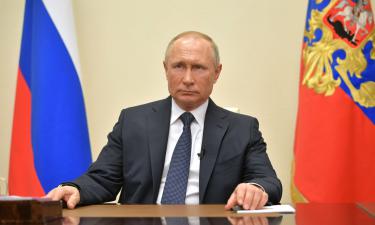Serbian foreign minister draws comparison between Georgia and Kosovo
Serbia's foreign minister said the link is clear - U.S. and Western support for Kosovo's secession from Serbia has helped fuel tensions in Georgia's separatist province of South Ossetia.
Minister Vuk Jeremic was quoted by the Vecernje Novosti daily on Thursday as saying the recognition of Kosovo's independence on Feb. 17 by the United States and its NATO allies has "destabilized" other parts of the world.
"We have pointed out to the international community from the very start that the unilateral declaration of independence by Kosovo could present a dangerous precedent," Vuk Jeremic was quoted as saying. "Unfortunately, this has proven to be true much sooner than anyone expected." Jeremic was not immediately available for comment, but his spokeswoman confirmed the authenticity of the newspaper interview.
Serbia lost control over Kosovo in 1999 after it launched a military campaign in the province against Kosovo's ethnic Albanian separatists. Then-President Slobodan Milosevic was forced to pull out of Kosovo after Serbia was bombed by NATO for 78 days in retaliation for its brutality against civilians in Kosovo.
Serbia's new, pro-Western leadership that came after Milosevic was ousted in 2000 has refrained from using force in Kosovo but has refused to give up its claim on the territory.
Earlier this month, Jeremic sought support in the United Nations for Serbia's request that the Netherlands-based International Court of Justice rule on weather Kosovo's declaration of independence was legal under international law.
If approved at the upcoming U.N. General Assembly session, the Serbian request would present an important diplomatic victory for the Balkan country, although the court's ruling would be nonbinding.
Serbia has refused to acknowledge the secession of predominantly ethnic Albanian region. It has sought to block Kosovo's membership in the United Nations and other international organizations.
Russia has supported Serbia while the United States and its EU allies have stood by Kosovo.
In Georgia, fighting broke out Aug. 7 when Georgia moved to take control of its separatist South Ossetia region. This triggered a massive intervention by Russia, which recaptured South Ossetia and then moved deep into other parts of Georgia.
Political analysts in Serbia say the Georgian move was prompted by the likelihood that South Ossetia and Abkhazia were preparing to follow Kosovo's example and declare independence.
Moscow has suggested it would support such a bid, while U.S. President George W. Bush said South Ossetia and another breakaway region of Abkhazia "are part of Georgia."
Jeremic said Serbia condemns the use of force in Georgia, and urged countries to find a "peaceful way through the United Nations, with respect to international agreements and international law."
Subscribe to Pravda.Ru Telegram channel, Facebook, RSS!




